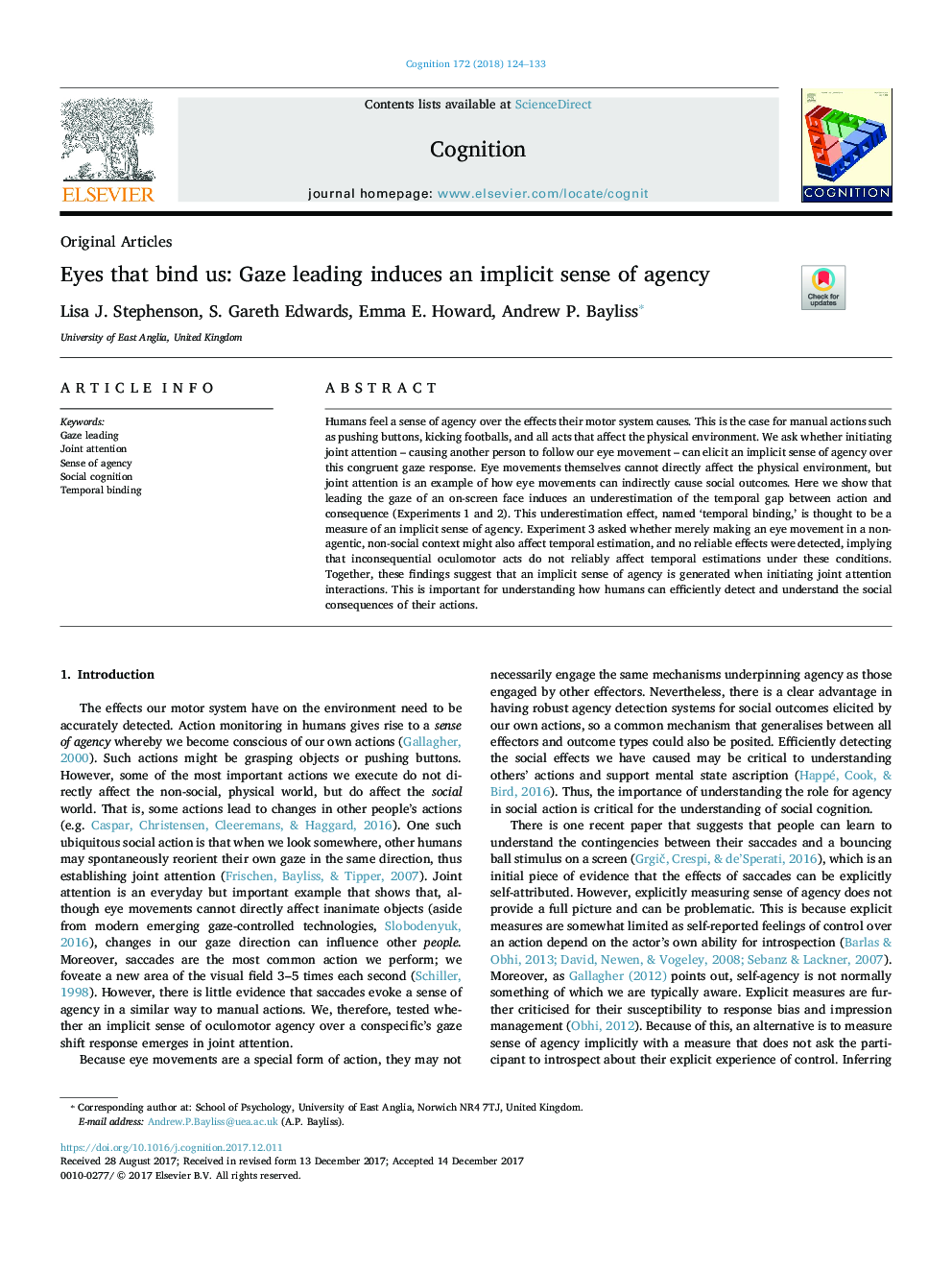| Article ID | Journal | Published Year | Pages | File Type |
|---|---|---|---|---|
| 7285549 | Cognition | 2018 | 10 Pages |
Abstract
Humans feel a sense of agency over the effects their motor system causes. This is the case for manual actions such as pushing buttons, kicking footballs, and all acts that affect the physical environment. We ask whether initiating joint attention - causing another person to follow our eye movement - can elicit an implicit sense of agency over this congruent gaze response. Eye movements themselves cannot directly affect the physical environment, but joint attention is an example of how eye movements can indirectly cause social outcomes. Here we show that leading the gaze of an on-screen face induces an underestimation of the temporal gap between action and consequence (Experiments 1 and 2). This underestimation effect, named 'temporal binding,' is thought to be a measure of an implicit sense of agency. Experiment 3 asked whether merely making an eye movement in a non-agentic, non-social context might also affect temporal estimation, and no reliable effects were detected, implying that inconsequential oculomotor acts do not reliably affect temporal estimations under these conditions. Together, these findings suggest that an implicit sense of agency is generated when initiating joint attention interactions. This is important for understanding how humans can efficiently detect and understand the social consequences of their actions.
Related Topics
Life Sciences
Neuroscience
Cognitive Neuroscience
Authors
Lisa J. Stephenson, S. Gareth Edwards, Emma E. Howard, Andrew P. Bayliss,
